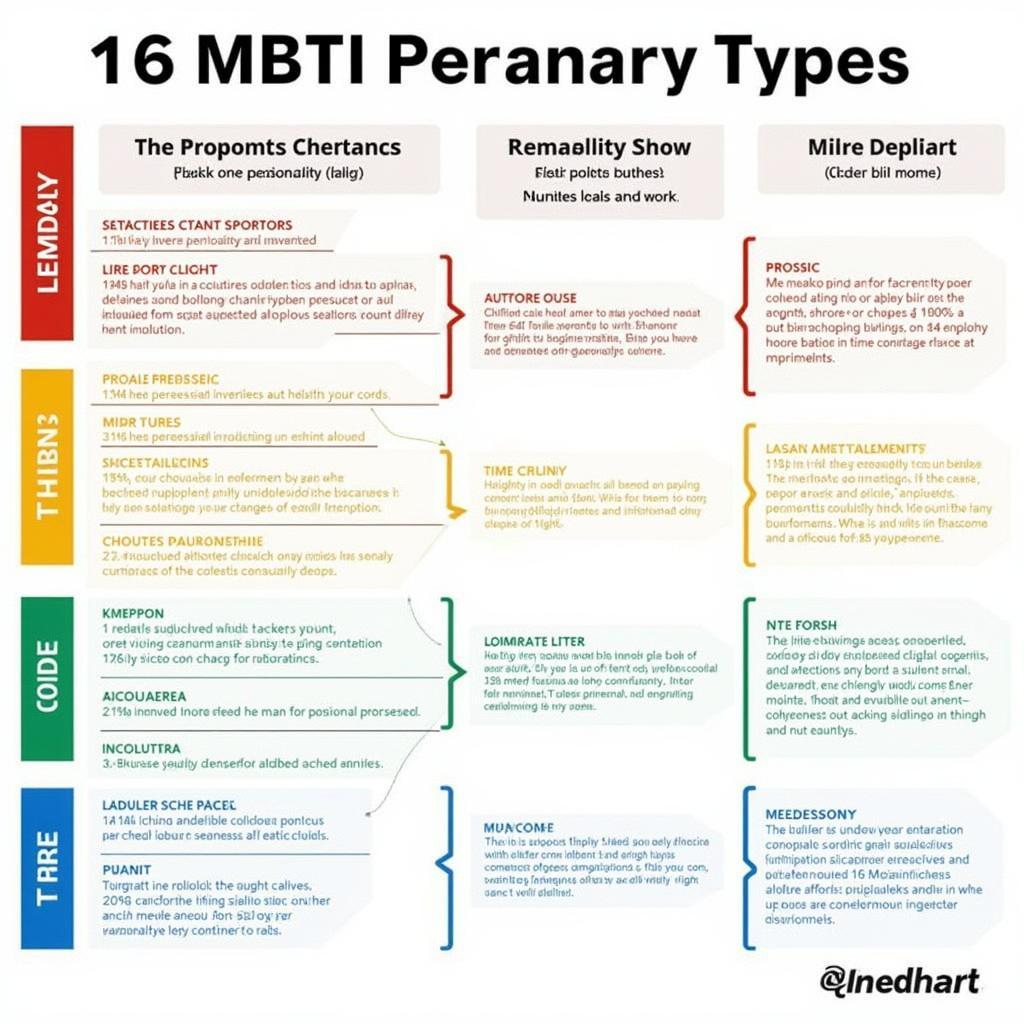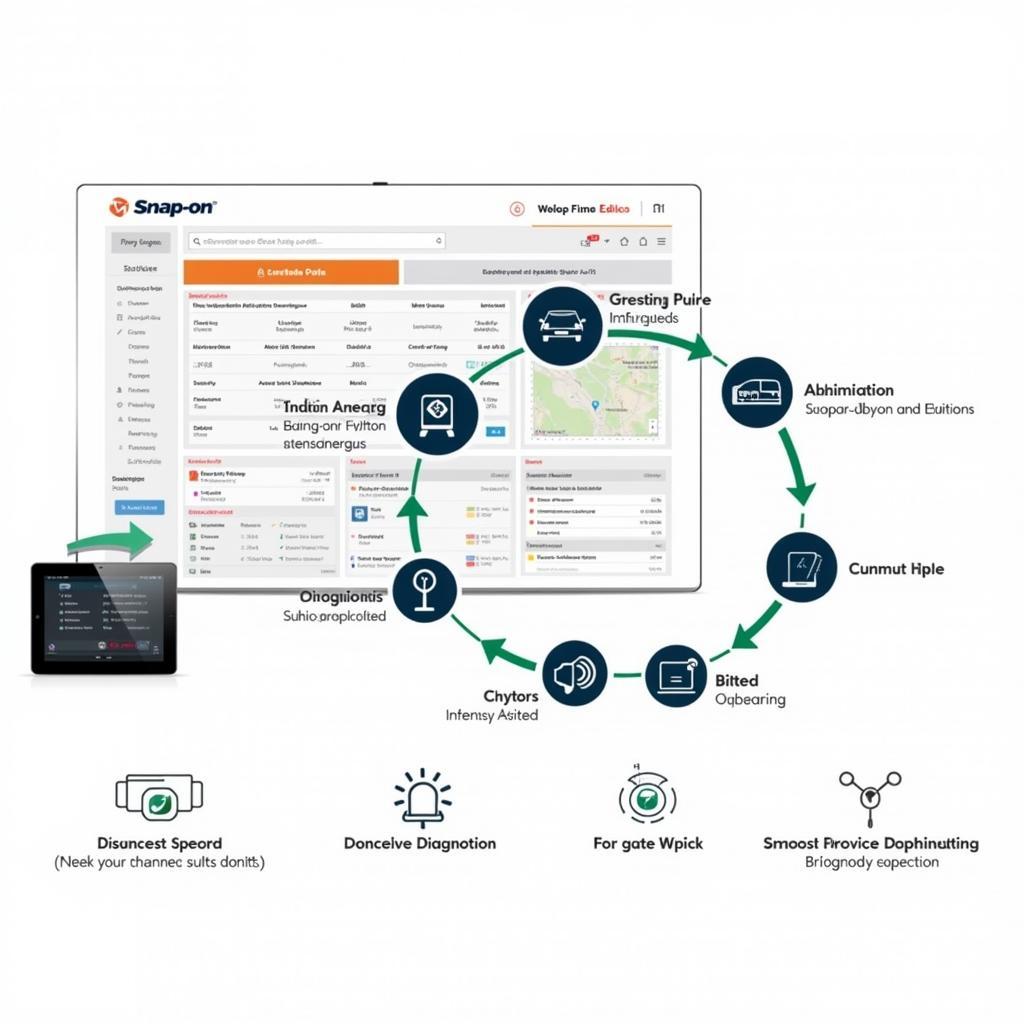The Myers-Briggs Type Indicator (MBTI) diagnostic tool is a widely recognized personality assessment designed to identify individual psychological preferences and categorize them into 16 distinct personality types. This tool is valuable for self-discovery, career development, team building, and improving communication.
Understanding the MBTI can unlock valuable insights into your own behavior and motivations, as well as those of others. This article explores the various aspects of the MBTI, from its theoretical foundations to its practical applications. It aims to provide a comprehensive overview of this powerful diagnostic tool and its potential benefits. Similar to other psychological tests diagnostic tools, the MBTI can be used to gain a better understanding of oneself and others.
What is the MBTI Diagnostic Tool and How Does It Work?
The MBTI is based on Carl Jung’s theory of psychological types. It assesses preferences across four dichotomies: Extraversion (E) vs. Introversion (I), Sensing (S) vs. Intuition (N), Thinking (T) vs. Feeling (F), and Judging (J) vs. Perceiving (P). Each individual’s preferences combine to form one of the 16 personality types, such as ISTJ, ENFP, or ESTJ. The MBTI instrument typically involves answering a series of questions about how you typically perceive the world and make decisions.
How can the MBTI help you?
- Self-awareness: Understanding your type can help you identify your strengths and weaknesses.
- Career development: Choosing a career path that aligns with your personality can lead to greater job satisfaction.
- Relationship building: Recognizing personality differences can improve communication and understanding in relationships.
- Teamwork: Appreciating diverse perspectives can enhance team dynamics and productivity.
 MBTI Personality Types Chart
MBTI Personality Types Chart
Key Dichotomies in the MBTI Diagnostic Tool
Each of the four dichotomies represents a spectrum of preferences. It’s important to remember that no type is “better” than another. They are simply different ways of approaching the world.
Extraversion vs. Introversion (E vs. I): Where do you focus your energy?
Extraverts gain energy from interacting with the external world and people, while introverts gain energy from their inner world and solitude.
Sensing vs. Intuition (S vs. N): How do you take in information?
Sensors focus on concrete details and facts, while intuitives focus on patterns, possibilities, and the big picture.
Thinking vs. Feeling (T vs. F): How do you make decisions?
Thinkers make decisions based on logic and objective analysis, while feelers prioritize values and personal considerations.
Judging vs. Perceiving (J vs. P): How do you approach the outside world?
Judgers prefer structure, planning, and closure, while perceivers prefer flexibility, spontaneity, and keeping options open.
Common Misconceptions about the MBTI
While a valuable tool, the MBTI is often subject to misunderstandings. It’s important to clarify that the MBTI:
- Doesn’t measure skills or abilities. It focuses solely on preferences.
- Isn’t a definitive label. Your type is a starting point for self-discovery, not a rigid box.
- Doesn’t predict behavior. It provides insights into tendencies, not guarantees of actions.
“The MBTI is a powerful tool for self-awareness, but it’s crucial to understand its limitations,” says Dr. Emily Carter, a renowned psychologist specializing in personality assessment. “It’s not about putting people into boxes, but about providing a framework for understanding individual differences.”
Applying the MBTI in Different Contexts
The MBTI finds applications in various settings, including:
- Career Counseling: Understanding your MBTI type can guide you toward suitable career paths.
- Team Development: Teams can use the MBTI to understand their strengths and weaknesses as a unit.
- Leadership Development: Leaders can utilize the MBTI to improve their communication and management styles. This can be particularly helpful in understanding how to effectively lead individuals with different personality types. It has a lot of similarities with psychology diagnostic tools.
- Personal Growth: The MBTI can facilitate self-reflection and personal development.
 MBTI Applications in the Workplace
MBTI Applications in the Workplace
Conclusion
The Mbti Diagnostic Tool offers a valuable framework for understanding personality differences. By exploring your own type and the types of others, you can gain insights that improve communication, enhance relationships, and foster personal and professional growth. For further assistance or more personalized guidance, feel free to connect with us at ScanToolUS.
Contact us at +1 (641) 206-8880. Our office is located at 1615 S Laramie Ave, Cicero, IL 60804, USA.


